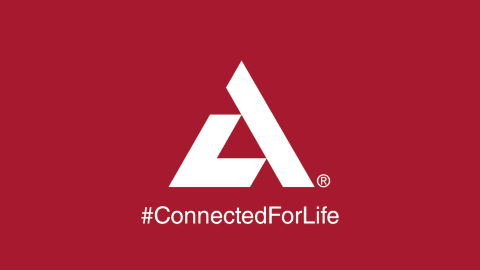American Diabetes Association, Black Lives Matter, NAACP, AARP and others urge Congress to make testing more accessible through mobile units, community health workers and other means
The American Diabetes Association® (ADA) today, along with over 100 other national groups, sent a letter to congressional leaders calling for them to focus their efforts for increasing testing in the most vulnerable communities as they continue to be hardest hit by the COVID-19 pandemic.
Groups such as Black Lives Matter Global Network, the NAACP, AARP, Boys and Girls Club of America, the American Nurses Association, YMCA of USA, and many others joined the ADA in highlighting the devastation being seen in underserved communities across the U.S. and calling out the disconnect in testing accessibility for people of color.
“The ongoing crisis has shined a light on existing health disparities that have left communities of color at increased risk of health complications and mortality during the COVID-19 pandemic. Minority groups already experience higher rates of chronic health conditions like diabetes, heart disease, and lung disease that COVID-19 hospitalization and mortality data show make the virus more deadly,” the letter stated.
Sobering statistics from across the country show that COVID-19 is disproportionately impacting minority groups. African Americans account for one-third of virus cases nationwide, despite making up just 13% of the U.S. population. Data from the Centers for Disease Control and Prevention (CDC) shows that American Indians and Alaska Natives are hospitalized for COVID-19 at 5 times the rate of whites. Additionally, in New York, Hispanics and Latinos die of COVID-19 more often than any other racial or ethnic group.
Collectively, the groups are asking Congress to bridge the gaps in health equity by bringing testing into areas and communities facing the highest risk of COVID-19 spread, complications and mortality. Specifically, they are asking for resources to be made available for:
- Community health centers, hospitals, and nonprofit organizations in minority, low-income, and underserved communities to bring testing to those who wouldn’t otherwise have access;
- These organizations to use local infrastructure, community health workers and others in their workforce, and distribution channels to increase testing in these communities; and
- Mobile testing units
“To tackle America’s systemic health inequities, we must meet those who are most at risk where they are. Greater accessibility to and availability of COVID-19 testing is critical if we are to begin to mitigate the devastating, disproportionate impact on underserved communities. When Americans are forced by circumstance to delay testing, they risk dangerous health outcomes for themselves, their families and their communities,” said Tracey D. Brown, CEO of the ADA.
# # #
,About the American Diabetes Association
Every day more than 4,000 people are newly diagnosed with diabetes in America. More than 122 million Americans have diabetes or prediabetes and are striving to manage their lives while living with the disease. The American Diabetes Association (ADA) is the nation’s leading voluntary health organization fighting to bend the curve on the diabetes epidemic and help people living with diabetes thrive. For nearly 80 years the ADA has been driving discovery and research to treat, manage and prevent diabetes, while working relentlessly for a cure. We help people with diabetes thrive by fighting for their rights and developing programs, advocacy and education designed to improve their quality of life. Diabetes has brought us together. What we do next will make us Connected for Life. To learn more or to get involved, visit us at diabetes.org or call 1-800-DIABETES (1-800-342-2383). Join the fight with us on Facebook (American Diabetes Association), Twitter (@AmDiabetesAssn) and Instagram (@AmDiabetesAssn).

